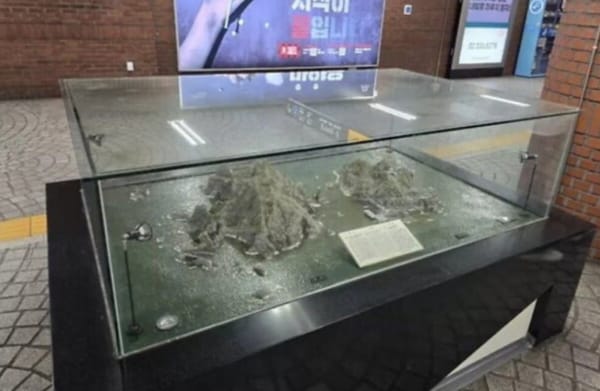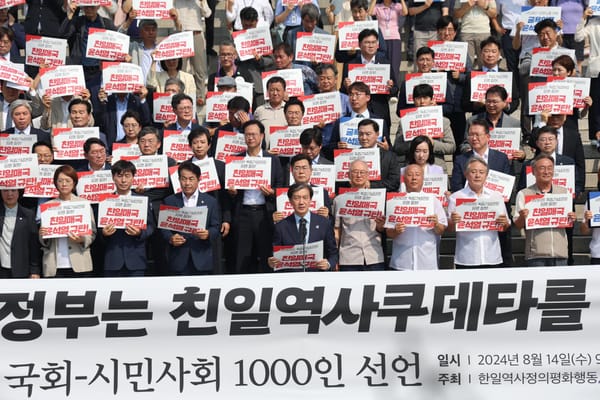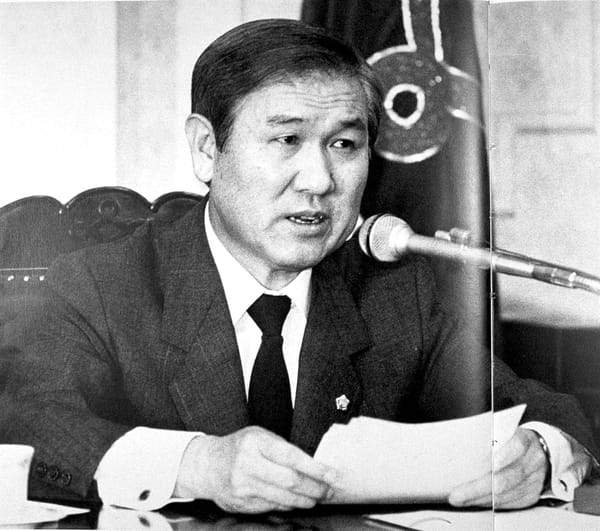Photo: Protesters criticize the Yoon administration's announcement of the Basic Plan for Carbon Neutrality. Credit: Business Post.
For a major industrial country, South Korea has not been pulling its weight in carbon reduction, despite being the world’s ninth heaviest emitter of greenhouse gasses. The Moon Jae-in 문재인 administration attempted to make up for lost time by hosting a P4G summit in 2021. To achieve carbon neutrality by 2050, the Moon administration pledged a 40% reduction in carbon emissions by 2030. (See previous coverage, “Climate Change Now a Top Agenda.”)
The Yoon Suk-yeol 윤석열 administration made a mockery of that pledge in its inaugural Basic Plan for Carbon Neutrality and Green Growth 탄소중립 녹색성장 기본계획, issued on March 21. While sticking with the goal of 40% reduction by 2030, the Basic Plan calls for a reduction of 1.39% to 2.97% between 2024 and 2027 - i.e., the duration of the Yoon administration. The plan then calls for South Korea to reduce carbon emissions by 4.17% in 2028, 5.55% in 2029, and an outrageous 17.54% in a single year in 2030.
In addition, the Basic Plan is exceedingly soft on carbon-emitting industries. Under the Moon administration’s plan, South Korea’s industries were required to reduce carbon emissions by 14.5% by 2030. Under the Basic Plan, that goal has been decreased to 11.4%, shifting the burden onto other sectors such as power generation, transportation, and agriculture. The Basic Plan claims it can achieve this reduction by implementing carbon capture technology by 2026 - an unrealistic scenario that calls for a mass deployment of an experimental technology in three years.








